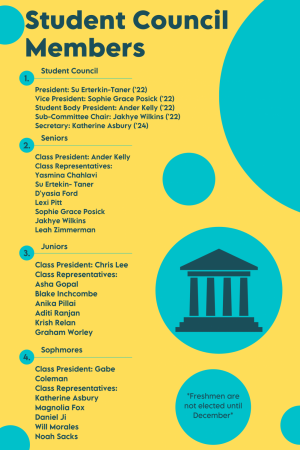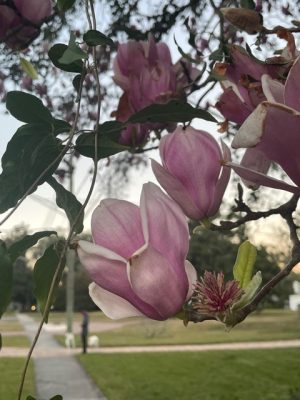Bolles in the World and the World at Bolles
September 30, 2016
 AP Latin student Harrison Dinsbeer chose his language on a whim, but later fell in love with it. “It sucked, it was really hard at first,” said Dinsbeer, “and then, by the end of 8th grade, I knew that I wanted to spend my life doing it.”
AP Latin student Harrison Dinsbeer chose his language on a whim, but later fell in love with it. “It sucked, it was really hard at first,” said Dinsbeer, “and then, by the end of 8th grade, I knew that I wanted to spend my life doing it.”
With so many choices, students at Bolles may have a difficult time choosing which class best suits them when trying to complete the two year language requirement. But if you talk to students taking these languages, it becomes apparent that each one provides it’s own unique benefits.
Ben Sievert, a sophomore taking Spanish IV Honors, was drawn to the language because of his heritage. “My mom’s side of the family is predominantly Cuban, and English is their second language, so I thought it would be important for me to study and learn to connect with them,” said Sievert. Students, including Sievert, also chose their languages to serve their career aspirations.
Sievert mentioned that taking Spanish would give him an advantage if he decides to follow his parents into medicine. With many people in the US speaking Spanish as their primary language, speaking Spanish would make it easier for him to communicate with more of his patients. Ross Petrou, a Japanese II Honors student, began taking Japanese and Chinese to give him more career opportunities in Asia, putting himself at a distinct advantage by learning the continent’s two most popular languages.
Some students are drawn to a language simply due to an attraction to its structure and the culture behind it. Dinsbeer was drawn to Latin due to the challenge of learning it, and enjoys the complexity and organization of it. Dinsbeer plans to get his PhD in Latin and teach it in college.
Elise Ballantyne took French III Honors because she loves the French culture. Ballantyne enjoys the language because of it’s beauty, and has become more involved in the language by traveling to France. She hopes to go back at some point and spend more time immersed in the culture.
While Jacob Piatt, an AP Chinese student, initially took the language to give him a leg up in his business career, his love for Chinese became much deeper after visiting the country during a Summer exchange. “At first, I chose Chinese because I thought I’d be doing something in business potentially, and it might be useful, but then I actually went to China, and it expanded to this cultural experience” said Piatt.
One class students living locally do not give much thought to is ESL, or English as a Second Language. Victor Hu, a senior who took ESL after moving to the US from China, said while being in an English-speaking environment helped him the most with his verbal communication skills, the class was important to his academic success.
“ESL’s objective isn’t to refine your basic communication skills, it is to make sure you get your papers done right. It’s to make sure you don’t make grammar mistakes when you’re doing a history paper or a lab report,” said Hu. While it may seem like an easy class to native English speakers, ESL plays a vital role in making sure foreign students learn how to use English in an academic environment.
Bolles Latin teacher Dr. Jeff Yeakel reinforced the idea that students should take a language for as long as they can. “The earlier you start a language, the better,” said Yeakel, “it actually changes the way your brain thinks, and opens up new neural pathways, no matter which language you choose”. He personally recommends that students wanting to pursue a career in medicine or law should consider Latin, since it gives students a foundation in the roots of the terminology used in these two professions.
With an array of offerings, competitions, and academic travel opportunities, the world languages department plays an integral role in a Bolles education. By offering five languages, competitions, and numerous exchange programs, you could say that Bolles offers the whole world to its students!






